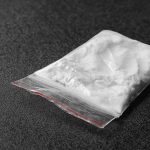- Symptoms Of A Cocaine Overdose
- Signs Of A Cocaine Overdose
- Risk Factors For A Cocaine Overdose
- Treating A Cocaine Overdose
Cocaine is a stimulant drug made from the leaves of the coca plant. It works by increasing the levels of dopamine in the brain. This increase sets off the reward centers in your brain which is one of the reasons it’s so addictive and habit-forming.
While anyone who uses cocaine has an increased risk of taking too much and overdosing, being addicted to the drug certainly increases the risk even more.
That being said, a cocaine overdose is more likely to occur after someone hasn’t used the drug in a while.
Once someone stops using cocaine for a period of time, their tolerance for it decreases. With a lower tolerance, if they relapse and try to take the same amount as they once did, they can very easily overdose. This, along with dangerous adulterants, has led to many drug overdose deaths.
Symptoms Of A Cocaine Overdose
A cocaine overdose comes with a variety of serious and life-threatening symptoms or side effects. If you experience a cocaine overdose, these are the symptoms you want to look out for:
- arrhythmias
- tachycardia (elevated heart rate)
- high blood pressure
- high body temperature (hyperthermia)
- sweating
- nausea/vomiting
- psychosis
- tremors
- seizures
- stroke
- hallucinations
- heart attack
- trouble breathing
- chest pain
- paranoia
- cardiac arrest
Signs Of A Cocaine Overdose
If a loved one experiences a cocaine overdose, there are several different signs you’ll want to look for. If someone experiences any of these physical or psychological signs, it’s important to get emergency help as soon as possible.
Physical signs of a cocaine overdose can include:
- fever
- loss of consciousness
- hyperventilation
- irregular breathing
- nausea
- vomiting
- tremors
- seizure
Psychological signs of a cocaine overdose can include:
- panic
- confusion
- anxiety
- paranoia
- hallucinations
- delusions
Risk Factors For A Cocaine Overdose
A cocaine overdose can happen to someone trying cocaine for the first time or someone who has used the drug for years. It can happen to anyone who is using the illicit drug, but there are a few risk factors that can make an overdose more likely.
History Of Cocaine Use
A history of cocaine abuse is one of the biggest risk factors for a cocaine overdose. If you’re using cocaine, you have an increased risk of overdose. Not using is always going to be better than using if you want to prevent an overdose.
Polydrug Use
Mixing cocaine with other substances like alcohol, heroin, or opioids can also increase the risk of a cocaine overdose.
Mixing cocaine with certain substances can counteract the effects of the drug and make you take more to get the “high” you want. This has led to many cocaine overdose deaths.
Cocaine and alcohol are also an especially toxic combination as the mixture produces cocaethylene, a powerful toxin that can increase your heart rate and intensify the concentration of cocaine in your bloodstream.
Dangerous Additives
Cocaine cut with fentanyl can also increase the risk of an overdose as it can reach toxic levels very quickly. Fentanyl can cause lung failure, heart failure, and severe respiratory depression.
High Tolerance
As you use cocaine, you begin to build up a tolerance. This means you keep needing to use more and more to feel the same effects. Increasing the amount you use is another major risk factor for a cocaine overdose.
Treating A Cocaine Overdose
When someone experiences a cocaine overdose, the first thing you can do is get them emergency medical attention as soon as possible. Once they’ve been stabilized, addiction treatment can then be considered.
Hospital Visit
The first action to take when you or a loved one is experiencing a cocaine overdose is to call 911.
Once emergency help arrives, they will take the person to the hospital. At the hospital, they may receive sedatives to lower their blood pressure and reduce their risk of heart attack, stroke, and/or aneurysms. Benzodiazepines may also be used to reduce the intensity of the overdose effects.
If a heart attack, stroke, or seizure has already occurred, healthcare providers at the hospital will likely work on reating those issues first.
Addiction Treatment
Once stabilized and discharged from the hospital, addiction treatment would be the next step to ensure an overdose doesn’t happen again.
Addiction treatment can include detox programs, inpatient treatment, outpatient treatment, therapy, medication-assisted treatment, and support groups.
If you or a loved one lives with cocaine addiction or another form of drug abuse, you don’t have to start on your recovery journey alone. Northeast Addiction Treatment Center offers outpatient services, including intensive outpatient and partial hospitalization programs.
To learn more about all our treatment options, please call our helpline today.
Sources
Written by
Northeast Addition Editorial Team
©2024 Northeast Addition Center | All Rights Reserved
This page does not provide medical advice.








